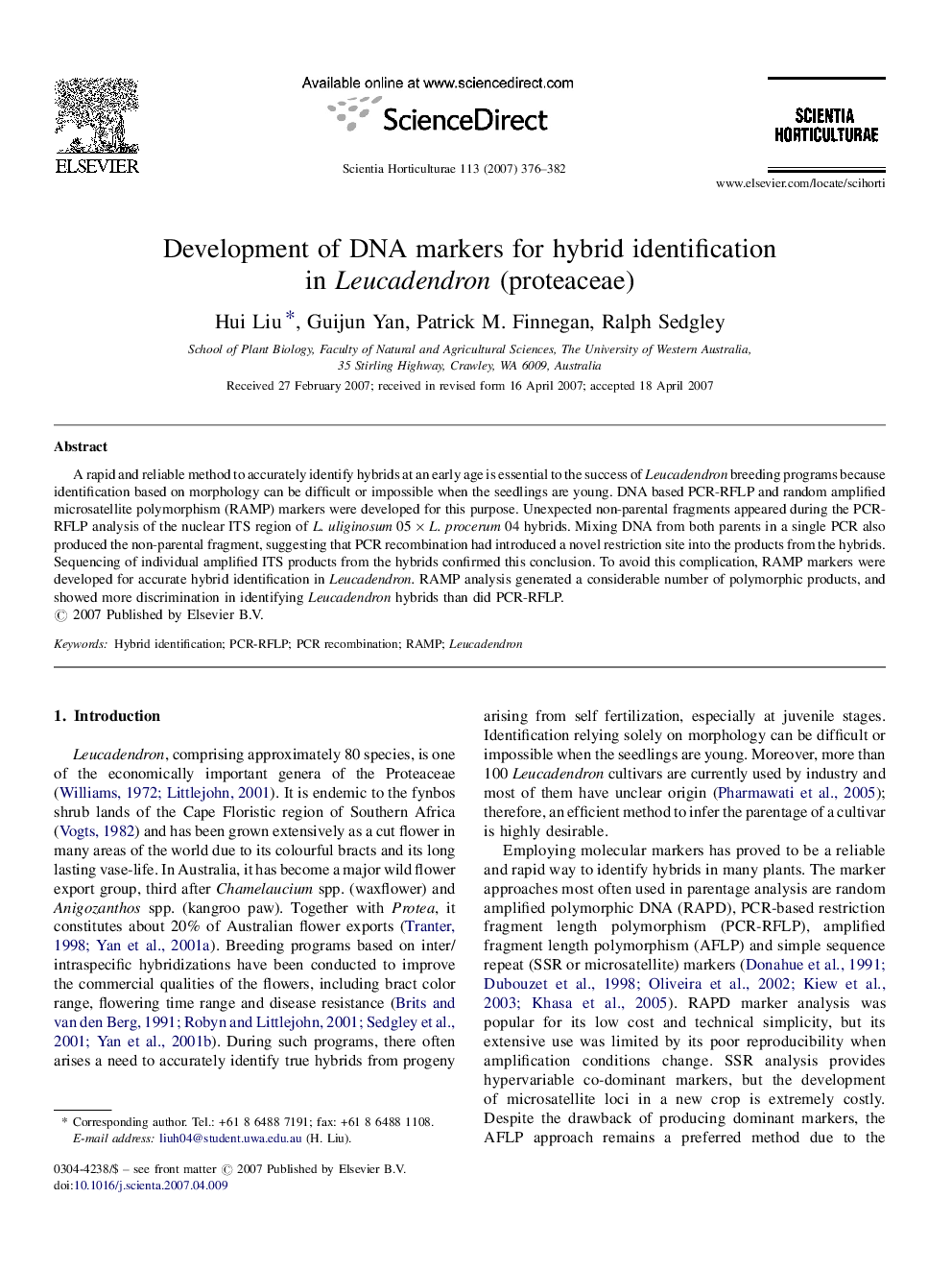| Article ID | Journal | Published Year | Pages | File Type |
|---|---|---|---|---|
| 4569886 | Scientia Horticulturae | 2007 | 7 Pages |
A rapid and reliable method to accurately identify hybrids at an early age is essential to the success of Leucadendron breeding programs because identification based on morphology can be difficult or impossible when the seedlings are young. DNA based PCR-RFLP and random amplified microsatellite polymorphism (RAMP) markers were developed for this purpose. Unexpected non-parental fragments appeared during the PCR-RFLP analysis of the nuclear ITS region of L. uliginosum 05 × L. procerum 04 hybrids. Mixing DNA from both parents in a single PCR also produced the non-parental fragment, suggesting that PCR recombination had introduced a novel restriction site into the products from the hybrids. Sequencing of individual amplified ITS products from the hybrids confirmed this conclusion. To avoid this complication, RAMP markers were developed for accurate hybrid identification in Leucadendron. RAMP analysis generated a considerable number of polymorphic products, and showed more discrimination in identifying Leucadendron hybrids than did PCR-RFLP.
